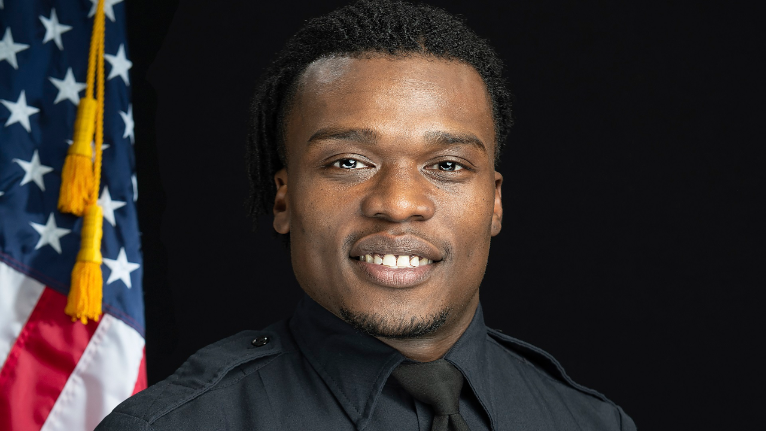MADISON, Wis. (AP) — A Wisconsin judge on Wednesday found probable cause to charge a police officer in the 2016 slaying of a Black man who was sitting in a parked car, taking the rare step of overruling prosecutors years after they declined to charge the officer.
Milwaukee County Judge Glenn Yamahiro said probable cause existed to charge Joseph Mensah with homicide by negligent use of a weapon in Jay Anderson Jr.’s death. He ordered a special prosecutor to formally file the charge within 60 days.
Yamahiro’s decision marks a victory for Anderson’s family, who took advantage of a little-used provision in state law to ask the judge for a second look at the case.
Mensah, who is also Black, discovered the 25-year-old Anderson sleeping in his car at 3 a.m. in a park in Wauwatosa, a Milwaukee suburb. Mensah said he shot Anderson after Anderson reached for a gun, but Anderson’s family disputes that and the judge on Wednesday said the evidence did not back up Mensah’s version of events.
Anderson was the second of three people Mensah shot to death during a five-year stint with the Wauwatosa Police Department. Prosecutors cleared him of criminal wrongdoing in each case.
Anderson’s family asked Yamahiro to review that case under an obscure state law that allows judges to directly question witnesses in what’s known as a John Doe proceeding. A judge who finds sufficient evidence for charges can file them directly, leaving prosecutors out of the equation. At least six other states have similar statutory provisions, but attorneys say the process is rarely used in Wisconsin.
The judge said he decided that the single charge against Mensah was warranted based on testimony about the circumstances of the shooting. Mensah should have been aware that pulling his weapon on Anderson created an unreasonable risk of death, Yamahiro said.
Mensah could have taken steps to de-escalate the situation, including waiting for backup that was on the way, the judge said.
Anderson’s behavior was consistent with someone who was intoxicated, had been asleep and was trying but having difficulty complying with Mensah’s orders, Yamahiro said.
The evidence did not back up Mensah’s claims that Anderson was pretending to be asleep or that Anderson lunged for his weapon, the judge said.
The judge also noted problems with the investigation and cited what he said were structural defects with having neighboring law enforcement agencies investigate one another and nearby district attorneys make charging decisions.
He ordered a special prosecutor to be appointed to handle the case.
Mensah joined the Wauwatosa Police Department in 2015. That year he fatally shot Antonio Gonzales, who identified as Latino and American Indian. Prosecutors said Gonzales refused to drop a sword.
The Anderson shooting came the next year. Then, in 2020, Mensah fatally shot 17-year-old Alvin Cole as Cole fled from police during a disturbance in a mall. Mensah said he shot Cole, who was Black, after he pointed a gun at him. That set off months of protests. Milwaukee County District Attorney John Chisholm’s decision not to charge him in that shooting led to more protests in Wauwatosa in October.
Mensah remained under pressure even after being cleared in Cole’s death and resigned in November. He collected a $130,000 severance payment and now works as a Waukesha County deputy, another Milwaukee suburb.
Waukesha County Sheriff Eric Severson, who hired Mensah as a deputy in January, didn’t immediately respond to messages seeking comment.
Motley, the Anderson family’s attorney, also represents the Gonzales and Cole families. She said she is considering invoking the John Doe process for them.
___
Associated Press writer Doug Glass contributed to this story.
___
This story was first published on July 28, 2021. It was updated on July 28, 2021, to correct that that the judge found probable cause to file a charge, not that the judge charged the officer. The actual filing will be done by a special prosecutor.



